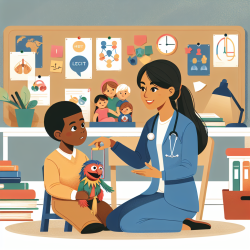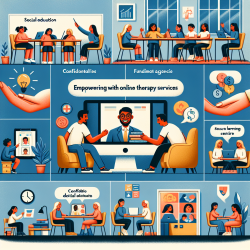As a therapist working in an educational setting, one of the most rewarding experiences is seeing students progress, especially those with unique challenges like Down syndrome. Recent research, specifically the study titled Narrative abilities in individuals with Down syndrome: single case-profiles by Isabel Neitzel, provides valuable insights into how we can better support these students in developing their narrative abilities.
Narrative skills are crucial for social interaction and overall communication. They encompass both macrostructural elements (like the overall story structure) and microstructural elements (such as word choice and sentence complexity). For students with Down syndrome, these skills can be particularly challenging, but the study offers a new approach by focusing on individual narrative profiles rather than group averages.
The study evaluated the narrative abilities of 28 children and adolescents with Down syndrome using the Narrative Scoring Scheme (NSS) across seven categories. It found that these students could be grouped into two main profiles: those with minimal narrative abilities and those with developing narrative abilities. No participants reached an advanced narrative level, highlighting the need for targeted interventions.
Here are some practical steps you can take based on the study's findings:
- Individualized Assessment: Use tools like the Narrative Scoring Scheme to assess each student's narrative abilities. This will help you identify their specific strengths and weaknesses.
- Targeted Interventions: Develop personalized intervention plans that focus on enhancing both macrostructural and microstructural narrative skills. For example, work on story elements like setting and resolution for those with minimal abilities, and refine sentence complexity and word choice for those with developing abilities.
- Integrate Cognitive and Language Skills: Since narrative abilities are closely linked to cognitive and language skills, consider incorporating activities that also enhance vocabulary and cognitive development.
- Monitor Progress: Regularly reassess narrative skills to track progress and adjust interventions as needed. Celebrate small milestones to keep students motivated.
Implementing these strategies can make a significant difference in the narrative abilities of students with Down syndrome, ultimately enhancing their communication skills and social interactions.
For those interested in delving deeper into the research, I highly recommend reading the original paper. You can access it here: Narrative abilities in individuals with Down syndrome: single case-profiles.










